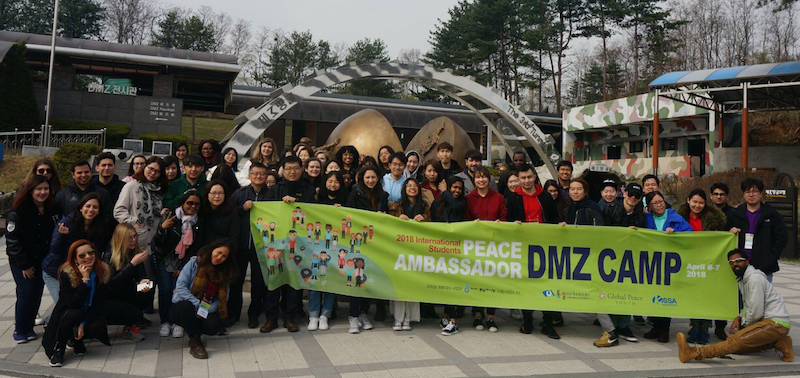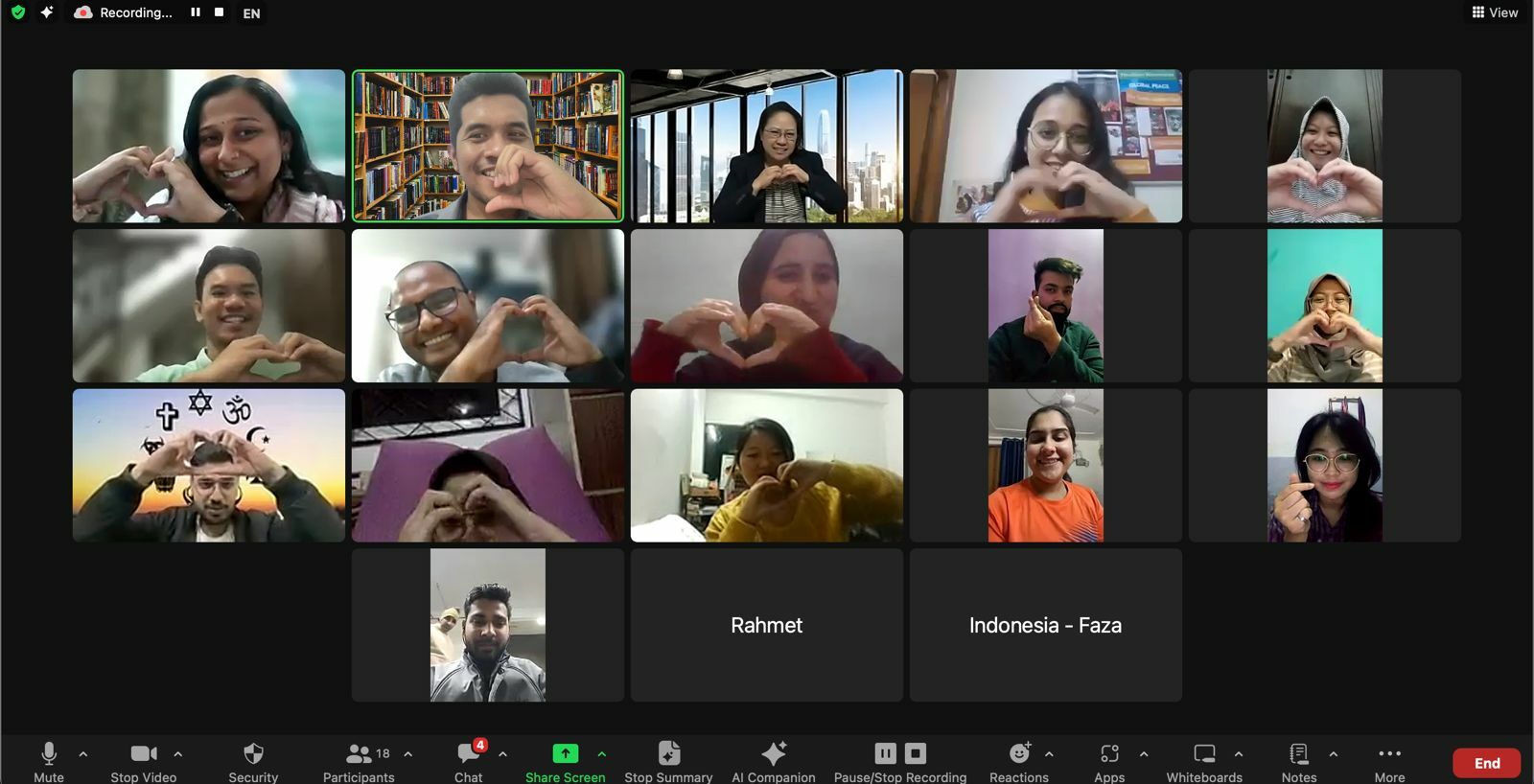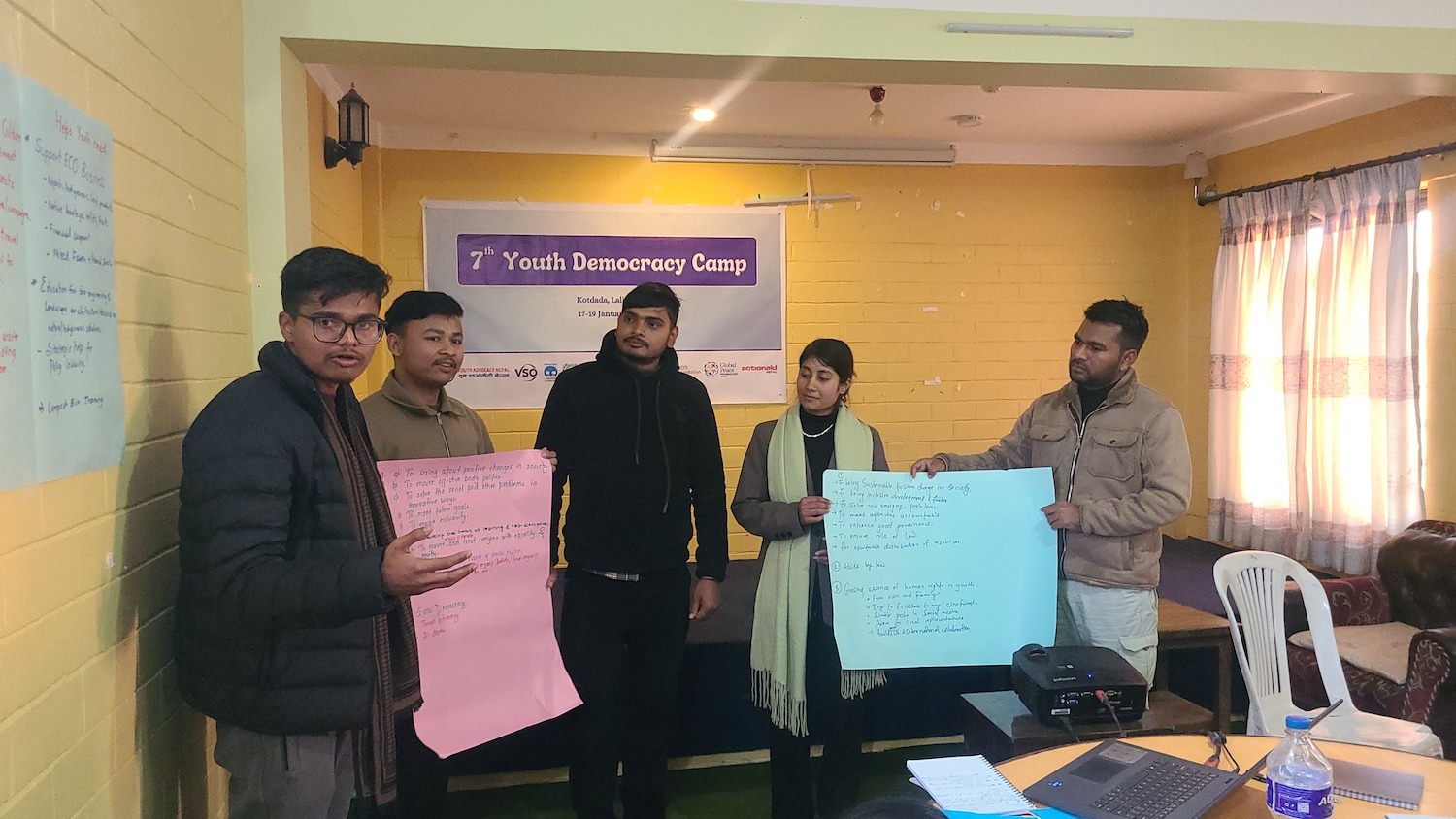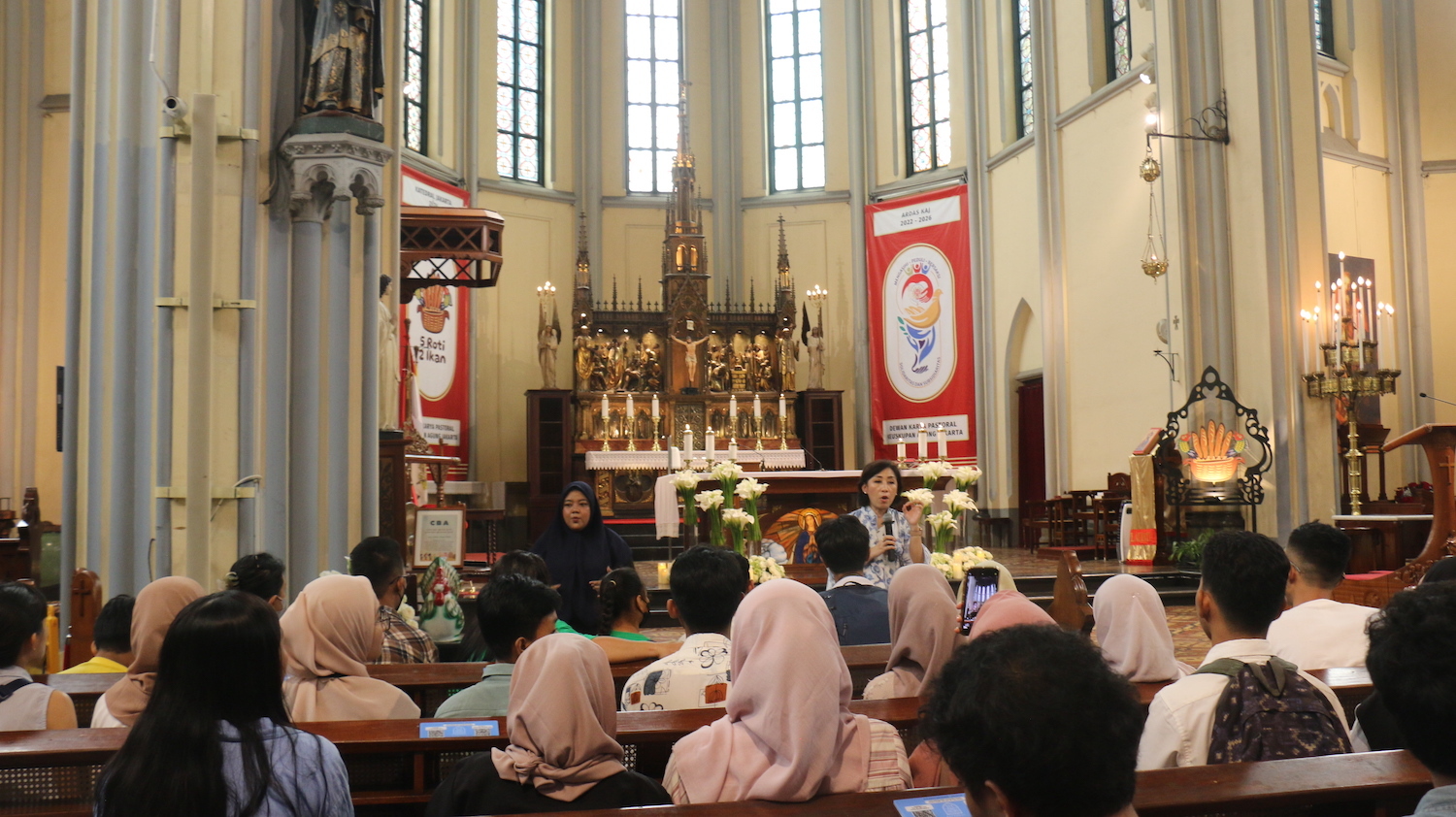The youth division of Global Peace Foundation (GPF) Korea partnered with KISSA (Korean International Student Services Association) to bring together students and young leaders in an international Peace Ambassadors program to explore the Demilitarized Zone (DMZ) dividing North and South Korea. The camp provided participants with the opportunity to hear from the secretary general of ICNK (International Coalition to Stop Crimes Against Humanity in NK) and a former Brazilian Seoul Student Culture Ambassador currently mastering in North Korean Studies. Speakers gave profound insight on Korean reunification from the perspective of foreigners and Korean citizens alike.
Rae from the United States shared her inspiring experience.
As an International Peace Ambassador I had the privilege of taking part in a rare opportunity: camping at the DMZ (De-militarized Zone, a.k.a. the HIGHLY militarized area surrounding the border of North and South Korea) with a diverse group of fellow ambassadors from varying cultures and backgrounds.
On the first day we viewed a unique film “Crocodiles in the Mekong River” (highly recommended) created by a North Korean defector as he retraced his dangerous escape route through Southern China, Myanmar, and Thailand. Following this, we listened to lectures by head representatives from unification and human rights organizations.
We slept within the DMZ limits in barracks all together.
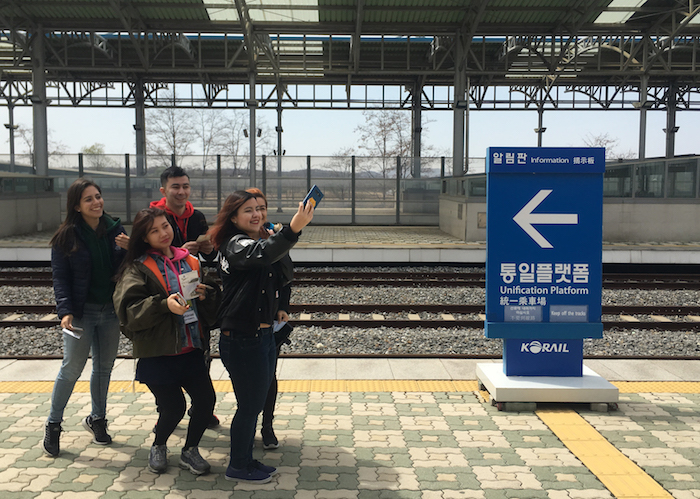
International group pause for a selfie at an empty platform at Dorasan Station
The following day we viewed North Korea on the observation deck and toured the 3rd tunnel, a land invasion preparation made by North Korea in case of total war. We also toured Dorasan Station, which sits empty… waiting for unification. God willing, when the peninsula does unite, South Korea will no longer be an island, and a KTX train will connect the border all the way to Lisbon, shrinking Eurasia.
We will be giving a public presentation regarding the prospect of reunification at the 2018 Peace Festival.
For now, I will reflect on my biggest lesson so far. We had a lot of downtime, and conversing with individuals from Rwanda, Ukraine, Venezuela, Georgia, South Korea and even Natives of the North American continent regarding concepts of identity, human rights, and unity, I can say I have renewed resolve to continue these complex conversations. I continue to see how critical it is to invest in the cultures that I either consume or have chosen to ignore (either through popular culture or due to the policies passed by those who represent me in government).
As an American, I have the privilege of sheer exposure to diversity of every sort (ethnic, cultural, linguistic, ideological, etc.) and I better understand now that we should “think globally act locally,” and reflect upon the individual cultures and experiences of those with whom we interact.
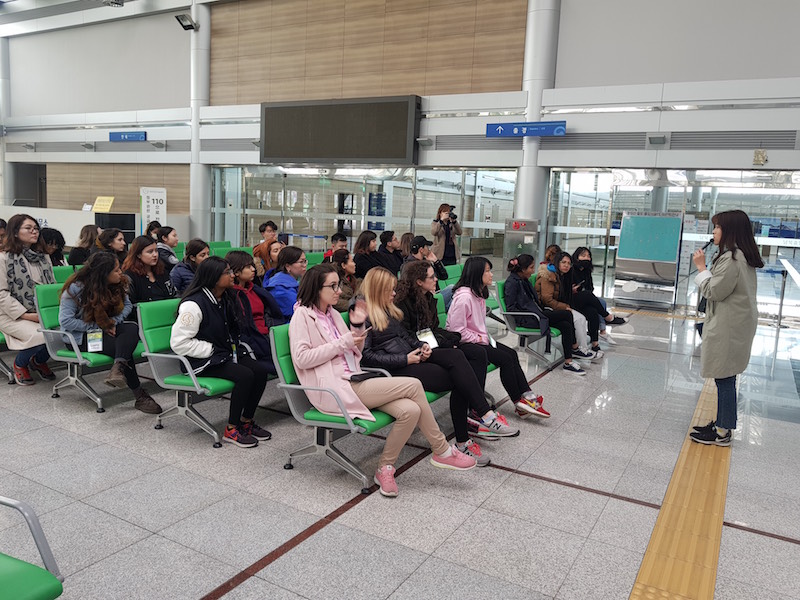
Listening to a presentation inside Dorasan Station
The individual is sculpted by experience, and stomping over those experiences thus erases the individual. Rather than shutting down others for being overly emotional or bringing in too much personal baggage, I encourage my friends and family to listen to the words and challenge themselves to reflect on what that individual or culture is bringing to the table and conversation. Speak, but above all, respect the speech of others by actively listening rather than waiting for your turn to talk.
Those who I had conversations with had views shaped by their lives, and I believe that the amalgamation of us all is the source of the solution for this unification issue as well as other complex challenges facing my nation and the global community.
Here more reflections in this video by KISSA.
The challenges on the Korean peninsula pose global concerns, consequences and opportunities. This year’s International Young Leaders Assembly (IYLA) will bring a focus to the Korean issue, gathering hundreds of international students and young professionals in Washington D.C. and New York City.
Find out more about the 2018 International Young Leaders Assembly
